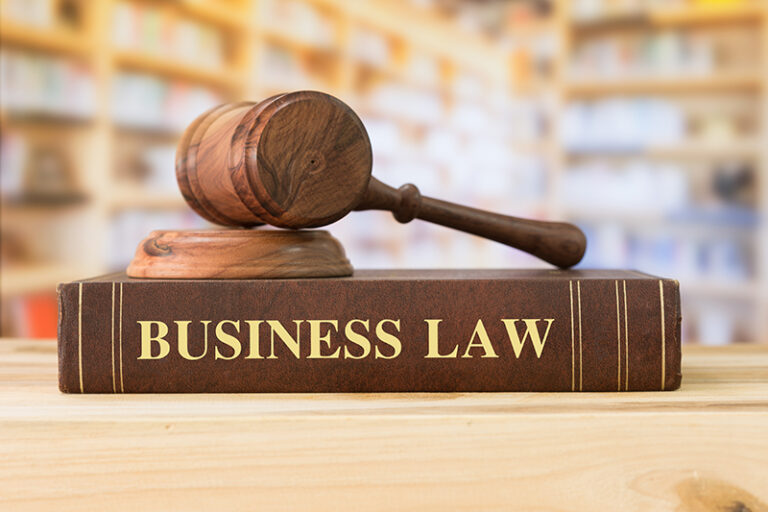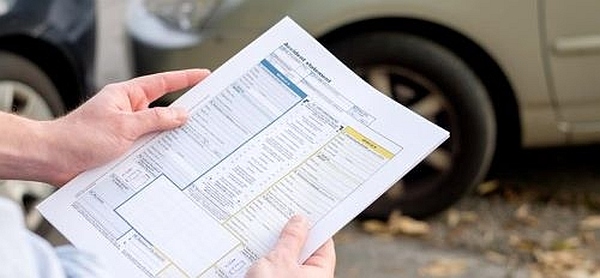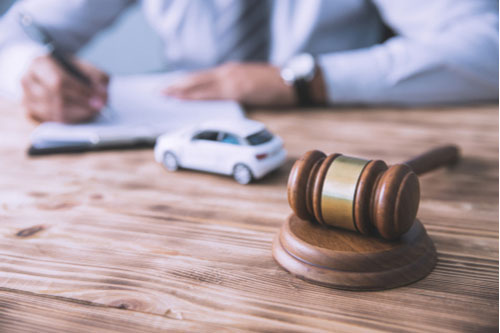If you’ve been involved in a filing an injury claim if partially at fault in Georgia accident, you may be wondering if you can still file a claim and recover compensation if you have been in a partial fault accident. In Georgia, the law recognizes that in many car accidents, more than one driver may share some degree of responsibility. This legal concept is known as comparative negligence, and understanding how it affects your ability to seek compensation is essential.
Legal Options for Partially At-Fault Drivers in Georgia
When you’re involved in a car accident, determining fault is a crucial step in the legal process. Georgia’s comparative negligence law, also known as the modified comparative negligence rule, allows injured parties to recover damages even if they are partially at fault. However, your ability to receive fair compensation depends on how much fault is assigned to you. Georgia’s comparative negligence rule is a fault based system, meaning compensation is determined by the degree of fault assigned to each party. This differs from contributory negligence, which in some states completely bars recovery if the injured party is even partially at fault.
In a partial fault accident in Georgia, you can pursue compensation as long as your percentage of fault does not exceed 50%. If you are found to be 50% or less at fault, you can recover compensation for your medical expenses, lost wages, and other related costs. However, the amount of compensation will be reduced by your percentage of fault. Fault affects both car accident claims and personal injury cases, impacting the amount you can recover and your legal rights. This rule applies to all car accident claims in Georgia. For example, if you are 20% at fault in a car accident and the total damages amount to $100,000, you would be eligible to recover $80,000.
Gathering Evidence and Determining Fault
After a partial fault accident in Georgia, gathering evidence is critical. Police reports, witness statements, physical evidence from the accident scene, and medical records all play a significant role in determining how much fault is attributed to each party involved. Insurance adjusters consider multiple factors and all parties involved when determining fault attributed in a car accident. Fault determination by insurance adjusters and the driver’s insurance company can make a significant difference in how much you ultimately receive.
It’s important to note that insurance companies may try to assign more fault to you to minimize the payout. Having an experienced car accident attorney on your side can help ensure that the fault assigned to you is fair and accurate. Consulting car accident attorneys and their legal team is crucial for guidance during the claims process and to help you navigate complex legal situations.
Effects of Partial Fault on Compensation
Being partially at fault in a car accident can significantly affect the compensation you are eligible to receive. Under Georgia’s modified comparative negligence rule, the percentage of fault assigned to you directly reduces the amount you can recover.
For instance, if you are found to be 30% at fault, your compensation will be reduced by that same percentage. This means if your total damages are $50,000, you would only be able to recover $35,000. However, if you are found to be 50% or more at fault, you may be barred from recovering any compensation at all. Because the percentage of fault assigned can make such a significant difference in your recovery, it’s crucial to have a car accident attorney on your side. An experienced attorney can help you navigate the legal process, challenge unfair fault assignments, and ensure that your rights are protected when dealing with the other driver and their insurance company.

Communicating with Insurance Companies
After a car accident, dealing with insurance companies can be one of the most challenging aspects, especially if you are partially at fault. Insurance adjusters are trained to minimize payouts and may try to use your words against you to reduce your compensation. It’s important to avoid admitting fault or making statements that could be misinterpreted. Stick to the basic facts of the accident and avoid speculating about what happened. Before providing any recorded statements or signing documents, consult with a car accident attorney.
An attorney can help you communicate effectively with insurance companies, protect your interests, and work to ensure you receive fair compensation for your injuries and losses. Remember, the goal of the insurance company is to settle for as little as possible, so having legal support can make a significant difference in the outcome of your claim.
Seeking Legal Guidance for Partial Fault Claims
Navigating a personal injury claim involving a partial fault accident in Georgia can be challenging. An experienced personal injury attorney or car accident lawyer can guide you through the legal process, help you gather the necessary evidence, and negotiate with the insurance company to ensure you receive fair compensation. Legal representation is essential for recovering compensation, and seeking compensation after a partial fault accident often requires professional legal support to protect your rights and maximize your recovery.
If you’re partially at fault in a car accident, don’t assume that you’re not entitled to compensation. Georgia’s comparative negligence laws protect your rights, even if you bear some responsibility. Legal expertise is crucial to ensure you don’t inadvertently admit fault or accept an unfair settlement. It is important to seek legal support and consult an attorney when seeking compensation or planning to seek compensation for your injuries.

Understanding Georgia’s Comparative Negligence Rule
Georgia’s comparative negligence law allows multiple parties to recover damages in a partial fault accident in Georgia, provided no one party is more than 50% at fault. Georgia’s comparative negligence applies to personal injury cases and insurance coverage, especially when more than one driver is involved. This approach ensures that even if you are partially at fault, you can still recover compensation for medical bills, lost wages, and other damages.
For instance, in a rear end accident, fault is typically assigned to the driver who rear-ended the other vehicle. However, if the other driver was driving recklessly or failed to signal properly, they may share some of the fault. Exceeding the speed limit can also result in fault being shared under Georgia’s comparative negligence law. Determining fault accurately and ensuring a fair settlement is crucial to receive the maximum compensation possible.
Steps to Take After a Partial Fault Accident in Georgia
If you’ve been involved in a partial fault accident in Georgia, here are some key steps to follow:
- Document the accident scene with photos and videos.
- Obtain witness statements and police reports.
- Seek medical attention to address physical injuries and create medical records.
- Contact an experienced attorney to understand your rights and gather evidence.
- Do not admit fault to the other driver or insurance adjusters.
- File a personal injury claim promptly to meet legal deadlines.
- File insurance claims and document all damages, including emotional distress, to ensure you seek compensation for both economic and non-economic losses.
For guidance on insurance claims and compensation for emotional distress, consider consulting personal injury attorneys to protect your rights and maximize your recovery.

Protecting Your Rights in a Car Accident
Protecting your rights after a car accident is essential to ensure you receive fair compensation for your injuries and damages. Taking immediate action can have a significant impact on your personal injury case. Start by gathering evidence at the scene, such as taking photos, collecting contact information from witnesses, and obtaining a copy of the police report. Seek medical attention right away, even if your injuries seem minor, to create a record of your medical expenses and physical injuries.
Consulting with a car accident attorney early in the legal process can help you understand Georgia’s comparative negligence laws and guide you through each step. An attorney will work to gather evidence, build a strong case, and advocate for your right to maximum compensation. By taking these steps, you can protect your interests and improve your chances of receiving fair compensation.
Maximizing Fair Compensation
To maximize fair compensation after a car accident, it’s important to take a proactive approach and work closely with a car accident attorney. An experienced attorney can help you gather evidence, document your medical expenses, lost wages, and other related costs, and build a compelling case for your personal injury claim. They will also handle negotiations with insurance companies, ensuring that your partial fault does not unfairly reduce your compensation.
By understanding how partial fault can impact your claim and taking steps to minimize its effect, you can pursue the maximum compensation available under Georgia law. Keeping detailed records and seeking legal support early in the process are key strategies for achieving a fair settlement and covering all your accident-related expenses.

Why Legal Support Matters
Insurance companies often try to reduce payouts by attributing more fault to injured parties. An experienced car accident lawyer can help ensure that the percentage of fault assigned is accurate and that you receive fair compensation for your injuries. In partial fault car accident cases, having legal expertise is crucial to navigating the complexities of Georgia law.
Your attorney can handle negotiations with the insurance company, gather evidence to support your claim, and provide legal guidance every step of the way. This support can make a significant difference in the outcome of your case and help you recover compensation to cover medical expenses, lost wages, and other damages.
Take the Next Step Today
If you’ve been involved in a partial fault accident in Georgia, don’t let the insurance company or your assigned fault percentage stop you from seeking the compensation you deserve. Remember, Georgia’s comparative negligence law still allows you to pursue fair compensation. Contact an experienced personal injury attorney 678-825-6004 today to get the legal support and guidance you need. Take control of your claim and ensure your rights are protected. Don’t wait—reach out to an attorney now and start the process to recover the maximum compensation possible for your injuries and losses.






